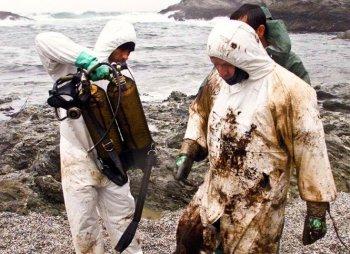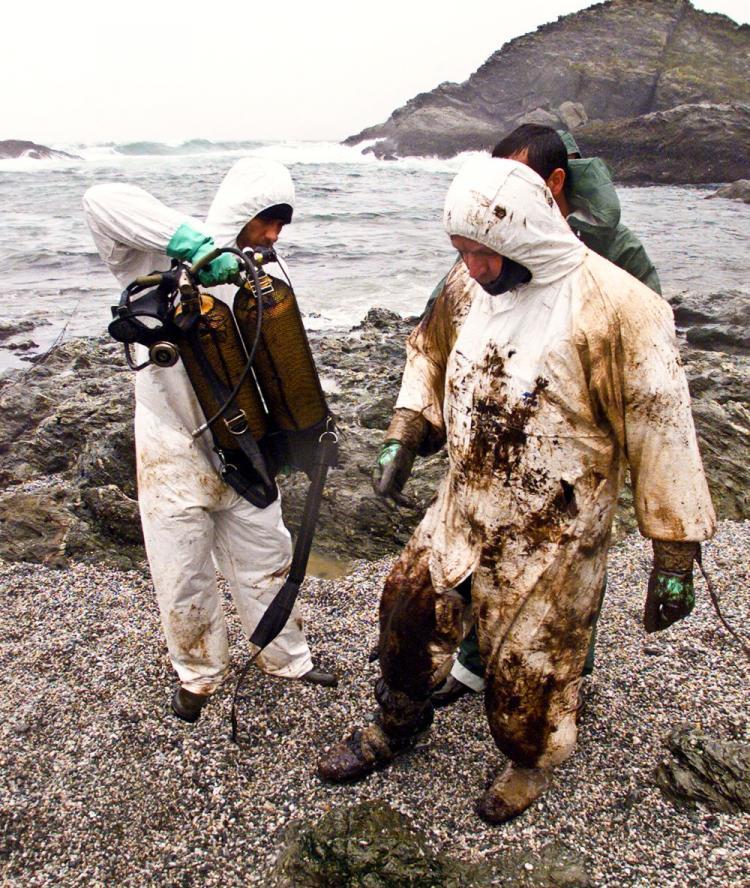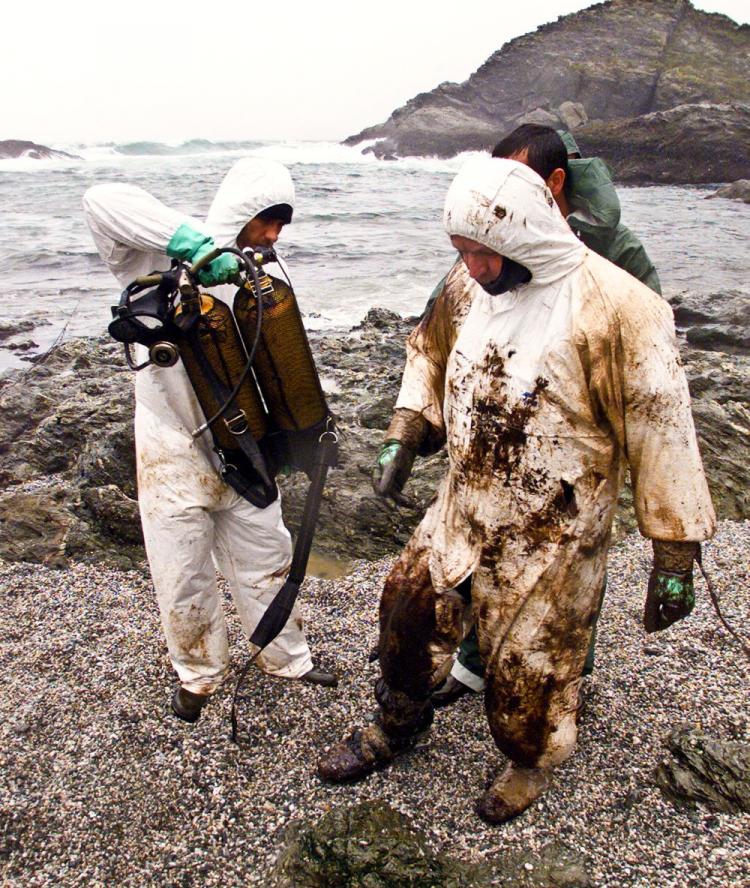French Oil Company Guilty, But Not Responsible, For Spill
The Paris appeals court has upheld a ruling against French oil giant Total.

Picture taken Oct. 18, 2000, of divers in the rocks of Port-Blanc in Belle-Ile, western France, where they prepare to collect underwater oil residues from the Erika oil spill. Marcel Mochet/AFP/Getty Images
|Updated:






